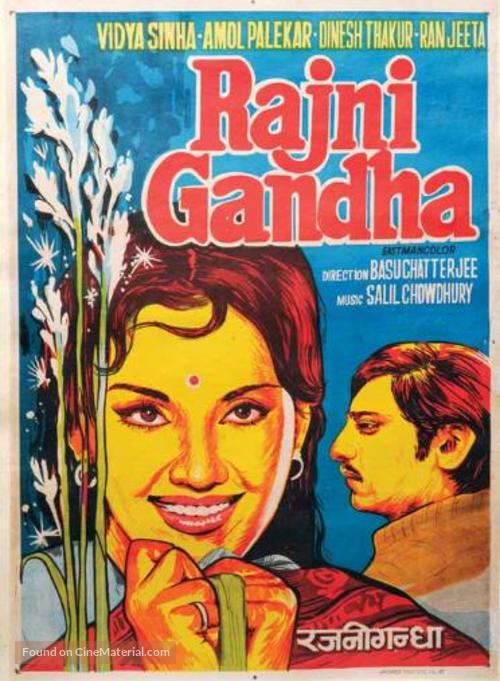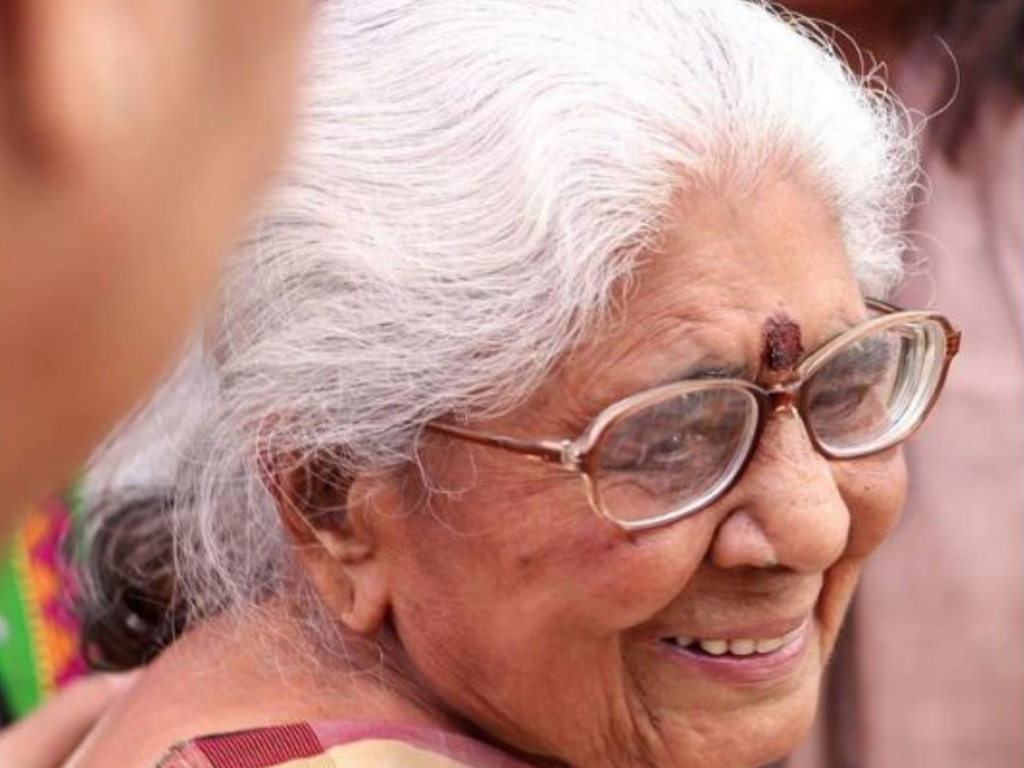Reading the stories of Mannu Bhandari (1931-2021), one of the pioneers of the ‘Nayi Kahaani’ movement that dominated Hindi literature in the post-independence India, is to engage with the process of reflection and recovery. Her stories are spreadsheets of emotional resonances spurred by the diurnal realities of middle-class existence. They deepen the understanding of human experience and its polyphonic tapestry. Her stories are dialogic interactions to unveil the nuances of empty spaces in the journey of life’s ups and downs. Her characters do not leave the confines of self-censorship; they indulge in self-doubt with devastating honesty.
Tucked into the unheard, pristine inwardness of existential angst, her female protagonists, love-struck characters in particular, betray an affinity for a lingering sense of stillness as they grapple with emotional and psychological dilemmas; no frenzy of urgencies in their mental constitution is a way to slow down life that scurries past. They cling to a naïve sense of rigidity till a renewed optimism to start life anew eventually flows into them. They arrive at self-awareness having subjected to a process of therapeutic self-excavation where they are bold enough to lay bare their subjective truths and, in doing so, regain an essentialist aura. The world of fractured or idealiaed individuality dissolves into the real world of wholeness as they arrive at truths through the rigours of internal agency rather the external authority of patriarchy. They emerge more ‘humane’ and the stories instill this abiding spirit of human nature with inimitable fidelity and simplicity.
What happens when her female characters are assailed with doubts? They are prodded to look within and turn around. The process helps them to cultivate empathy for others; the ego is annihilated in the wake of self-torment. The blind egotism is reined in promoting a kind of critical reflection in the grueling process of self-regulation and transformation. The idyllic state of idealism gives in to a solemn sense of realism. This self-search, filtered through the multiplex moods of human perception makes them ‘humane’ as they spring out of the crucible of life not unscathed but palpably wiser. Their entitlement to freedom, which adds beauty and grandeur to their physiology of experience and consequent self-search, is the validity of their personas. Call it Mannu Bhandari’s humanistic feminism that regulates the affective and ontological framing of her narratives and guides the collective heart demolishing the male-female dichotomy.
Her female characters, indulging in the palpitating reality of pensive tenderness, enter into the trance of pauses as memories of the ‘unrealised’ or ‘unrequited’ pour out from all sides. They gain time to empty out as they find themselves wallowing in their inner wasteland with despair, resentment, uncertainty, and longing till they stumble into their ‘unexamined’ own with a forward-looking gaze. As the ghosts of the past return, the landscape of tormenting thoughts grow more open intensifying the narrative action of her stories. To catch the fluttering pulses of her ‘narrative pauses’ is a delight to know life, its twists and turns and discover the shades of one’s self. The doors of ‘becoming’ are flung open and characters embrace more meanings in the progression to self-discovery. If they appear doomed to perpetuate their dilemmas, they are also aware of the redemptive antidote to their tormented ambivalence. This experiential testimony, where they are not immune to the beauty and irony of life, is the gift of Mannu Bhandari’s narratives.
Her female characters, fragile as they might appear, emerge as level-headed minds not to be subdued by societal pressures. Patriarchy, ideologically saturated, cannot delimit the spheres of their operation. These ordinary mortals betray the real grit to take up the cudgels for the deprived or marginalised and make the patriarchal lackeys of all-consuming male chauvinism go beetroot. Remember Basu Chatterjee-directed serial Rajani where the protagonist Rajani stands undaunted as a change-maker battling against the teeny-tiny injustices of society, challenging the normalisation of blatant corruption under the nose of the powers that be and having the last laugh. These female characters inspire other female characters to craft the journey onward. This is a remaking of feminine consciousness impinged upon a spirited sense of independence and integrity. Feminist women readers, bent on finding androcentric or phallocentric conventions in Mannu Bhandari’s oeuvre, need to be reminded of the spirit of ‘universal’ humanism that informs Bhandari’s brand of feminism envisaging a world of gender collegiality.
 No comment on Mannu Bhandari is complete without the reference to Basu Chatterjee’s iconic film Rajnigandha (1974), the film adaptation of the romantic story Yehi Saach Hai (This is Truth). The ending of this radical narrative universalises the value of ‘moment’ of union between two lovers, Deepa and Sanjay. This ‘moment’ of truth is neither instinctual nor provisional. It is the epiphany of true love, a moment of acute realisation marginalising the flickering of ‘anjaani chaah’ (unknown desire), in the immortal words of the lyricist Yogesh in Rajnigandha. Here, the fallibility of human behavior is a painful truth recognised with compassion and empathy rather than critiqued with stereotypical cynicism. The enduring toll of self-doubt eventually purges Deepa of her tormented ambivalence and unfolds the bedrock realities of true love. As self-doubt recedes, the clarity of love gains ground. Deepa’s enlightened blindness about love, which holds her as a captive in her futile emotional wanderings, helps her to come to grips with self-affirming love. She is able to distinguish between what makes love airy and what makes it imperishable. Love unshackles her from her white heat of self-doubt rendering the intangible concrete, as tears wash away her pent-up anxiety. The gloating expression in her eyes and the serenity of their reunion in the final scenes of Rajnigandha speak for the discerning power of love. To call the ending of the story an escape into a utopia of cloying romanticism is to ignore the intrinsic richness of love that pines for consummation in a world of emotional deficit. The monosyllables of each word in ‘yehi saach hai’ embody Mannu Bhandari’s re-visioning of feminine consciousness that endorses the alchemical potential of love as a primary determinant of the philosophy of human existence. What an unforgettable immediacy capturing the incantatory power of tenderness in the epigrammatic phrase ‘yeh ksan hi sayta hai’ (This moment is the truth) where the ‘moment’ melts into eternity as Deepa and Sanjay plunge into an upsurge of swelling passion of reciprocal love, kissing each other to celebrate the glorious fruition of their relationship amidst the maddening fragrance of bridal bouquet, Rajnigandha. It symbolises female fulfillment as Deepa’s private world is anchored while the tide of tuberose (rajnigandha) beats on the shore of heart (man ki simarekha), an allegory of the collapse of boundaries. From Mannu Bhandari, readers inherit this bounty of ‘moment’ not only as a blissful affirmation of companionship singing the harmonies of humanity but also as an ethical design that lends internal coherence to her stories of cultural memory, childhood trauma, marriage and search for selfhood against stereotypes.
No comment on Mannu Bhandari is complete without the reference to Basu Chatterjee’s iconic film Rajnigandha (1974), the film adaptation of the romantic story Yehi Saach Hai (This is Truth). The ending of this radical narrative universalises the value of ‘moment’ of union between two lovers, Deepa and Sanjay. This ‘moment’ of truth is neither instinctual nor provisional. It is the epiphany of true love, a moment of acute realisation marginalising the flickering of ‘anjaani chaah’ (unknown desire), in the immortal words of the lyricist Yogesh in Rajnigandha. Here, the fallibility of human behavior is a painful truth recognised with compassion and empathy rather than critiqued with stereotypical cynicism. The enduring toll of self-doubt eventually purges Deepa of her tormented ambivalence and unfolds the bedrock realities of true love. As self-doubt recedes, the clarity of love gains ground. Deepa’s enlightened blindness about love, which holds her as a captive in her futile emotional wanderings, helps her to come to grips with self-affirming love. She is able to distinguish between what makes love airy and what makes it imperishable. Love unshackles her from her white heat of self-doubt rendering the intangible concrete, as tears wash away her pent-up anxiety. The gloating expression in her eyes and the serenity of their reunion in the final scenes of Rajnigandha speak for the discerning power of love. To call the ending of the story an escape into a utopia of cloying romanticism is to ignore the intrinsic richness of love that pines for consummation in a world of emotional deficit. The monosyllables of each word in ‘yehi saach hai’ embody Mannu Bhandari’s re-visioning of feminine consciousness that endorses the alchemical potential of love as a primary determinant of the philosophy of human existence. What an unforgettable immediacy capturing the incantatory power of tenderness in the epigrammatic phrase ‘yeh ksan hi sayta hai’ (This moment is the truth) where the ‘moment’ melts into eternity as Deepa and Sanjay plunge into an upsurge of swelling passion of reciprocal love, kissing each other to celebrate the glorious fruition of their relationship amidst the maddening fragrance of bridal bouquet, Rajnigandha. It symbolises female fulfillment as Deepa’s private world is anchored while the tide of tuberose (rajnigandha) beats on the shore of heart (man ki simarekha), an allegory of the collapse of boundaries. From Mannu Bhandari, readers inherit this bounty of ‘moment’ not only as a blissful affirmation of companionship singing the harmonies of humanity but also as an ethical design that lends internal coherence to her stories of cultural memory, childhood trauma, marriage and search for selfhood against stereotypes.
Mannu Bhandari’s authorial mind is grounded on the discourse of life and relationship. As an existentialist, she is a mediator between her characters and readers, who, with their faces pressed against the vagaries of life, drift into the haze of life without stealing glances at their follies and imperfections till a radiant burst of truth dawns on them. They find life’s headlights, no matter how trivial and commonplace, flashing on the rear-view mirror. It allows them to slow down, pause and search for answers to a volley of unaddressed questions till they are able to strike through unexamined questions and manage to unearth the answers themselves. What is stripped away in the game of trust and betrayal is the gain of life’s truths and human goodness. The two seemingly different roads seem to converge on moral imperatives as the debilitating influence of self-doubt is exorcised. The arrogance of ignorance, incomprehensible to reasoning, gives in to the clarity of wisdom. What is conflated stands clarified, reaffirming the value of integrity that makes the design of her narratives convincingly organic and self-reflexive. Self-doubt crumbles at the edges of life’s absurdity as characters bask in the sunshine of sagacity. Her stories break the iceberg between the male and female egos by nurturing the grace of unalloyed love. Love is the operative mantra for the purpose of the study of life and the inconsistencies of human behaviour. Her feminism yields precedence to the alchemy of love subverting the constricting grammar of any ‘ism’ that underscores the male-female binary. Her stories function as an accurate barometer for the ‘world within’ her female characters. This remains the indispensable ground of value, the striving for humaneness and redemptive beyondness. No wonder, readers are the beneficiary of Mannu Bhandari’s humane vision.





